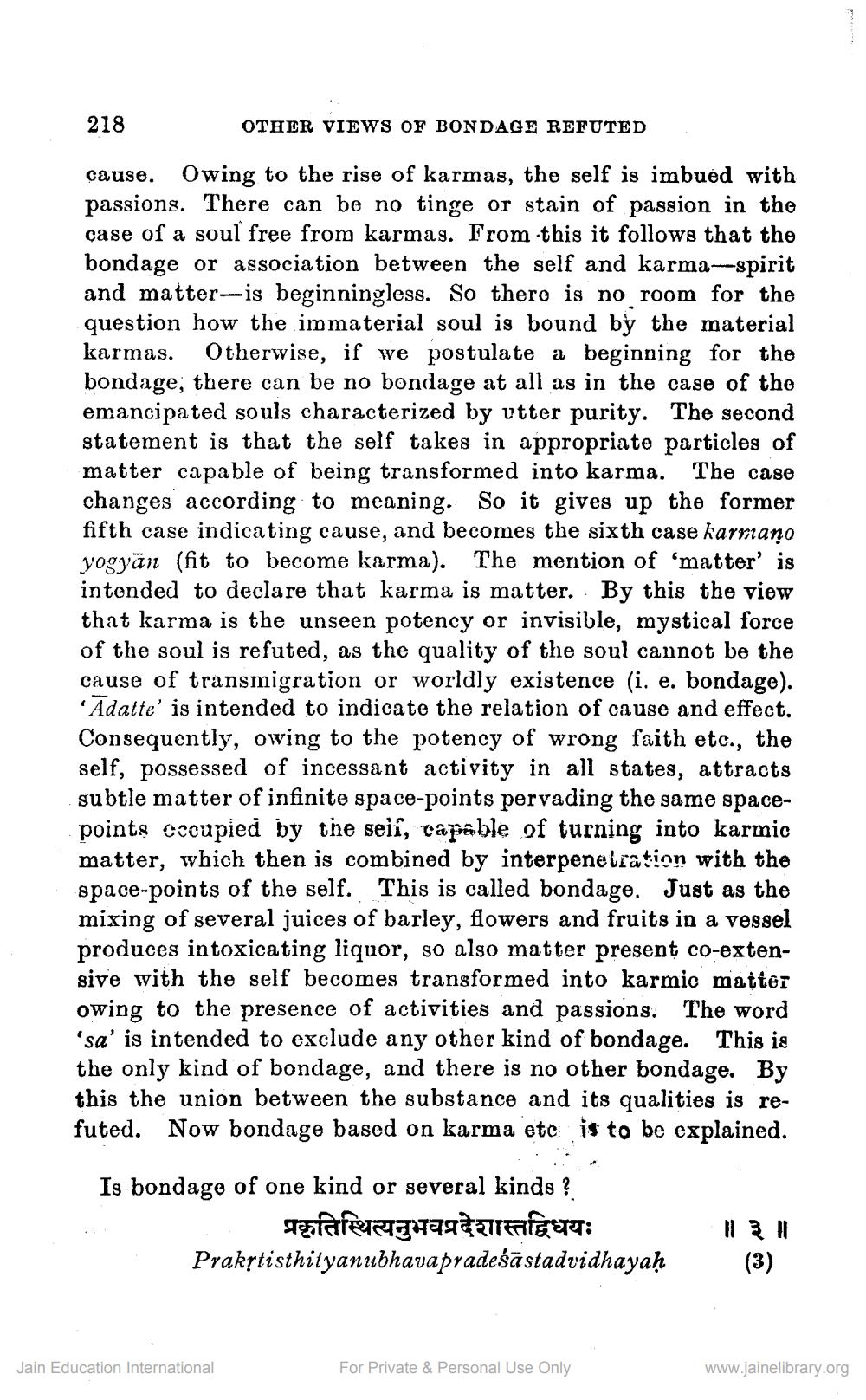________________
218
OTHER VIEWS OF BONDAGE REFUTED
cause. Owing to the rise of karmas, the self is imbued with passions. There can be no tinge or stain of passion in the case of a soul free from karmas. From this it follows that the bondage or association between the self and karma--spirit and matter-is beginningless. So there is no room for the question how the immaterial soul is bound by the material karmas. Otherwise, if we postulate a beginning for the bondage, there can be no bondage at all as in the case of the emancipated souls characterized by utter purity. The second statement is that the self takes in appropriate particles of matter capable of being transformed into karma. The case changes according to meaning. So it gives up the former fifth case indicating cause, and becomes the sixth case karmano yogyān (fit to become karma). The mention of 'n intended to declare that karma is matter. By this the view that karma is the unseen potency or invisible, mystical force of the soul is refuted, as the quality of the soul cannot be the cause of transmigration or worldly existence (i. e. bondage). 'Ādatte' is intended to indicate the relation of cause and effect. Consequently, owing to the potency of wrong faith etc., the self, possessed of incessant activity in all states, attracts subtle matter of infinite space-points pervading the same spacepoints occupied by the seis, capable of turning into karmic matter, which then is combined by interpenetration with the space-points of the self. This is called bondage. Just as the mixing of several juices of barley, flowers and fruits in a vessel produces intoxicating liquor, so also matter present co-extensive with the self becomes transformed into karmic maitor owing to the presence of activities and passions. The word 'sa' is intended to exclude any other kind of bondage. This is the only kind of bondage, and there is no other bondage. By this the union between the substance and its qualities is refuted. Now bondage based on karma ete is to be explained.
Is bondage of one kind or several kinds ?
प्रकृतिस्थित्यनभवप्रदेशास्तद्विधयः Prakstisthilyanubhavapradeśāstadvidhayaḥ
(3)
Jain Education International
For Private & Personal Use Only
www.jainelibrary.org




